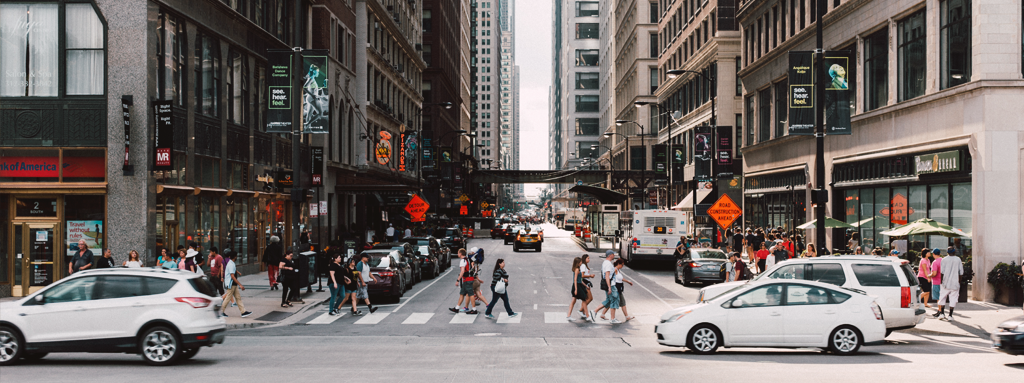City Tech launches solution to clear up curbside chaos
Dive Brief:
- Urban solutions accelerator City Tech Collaborative launched a new curbside management solution in Chicago to help the city develop a better understanding of competing curbside demands.
- The new solution will use data on economic activity and curb usage to model curb demand and value for the different groups competing for that space — whether it’s a restaurant delivery service, public transportation, freight providers or personal vehicles. The group will build tools for cities to manage operations at the curb with pricing, data and other technology.
- The solution combines technology and analytics abilities from Bosch and HERE Technologies, in addition to modeling support and data from Stantec, Teralytics, SpotHero and Carrier Direct.
Dive Insight:
Cities are experiencing many competing interests at the curb from public transit, parking, ride-hail services, food deliveries, e-commerce deliveries and more. "The curb is where all the macro changes in transportation are showing up," City Tech Collaborative Director of City Solutions David Leopold told Smart Cities Dive.
There’s been strong dialogue about how cities can allocate curb space, in addition to how cities can price the curb and operational tools to support that, he said. But what’s missing is an understanding of the total demand for the curb, according to Leopold. City Tech aims to help cities develop a better understanding of those demand for more more informed decisions about pricing and prioritizing space.
Urban last-mile deliveries are projected to grow
78% by 2030, according to a January report from the World Economic Forum. Cities are predicted to become "severely challenged" by traffic and congestion from e-commerce deliveries. To get ahead of those issues, cities are experimenting with a number of different pilots and technology solutions.
Columbus, OH introduced a pilot with mobility company curbFlow in November 2019 to address the growth in deliveries, as well as pick-ups and drop-offs from TNCs. The city added clearly marked Loading Management Zones
throughout Columbus for commercial and private vehicles doing commercial work. CurbFlow also worked with Washington, DC's Department of Transportation on a three-month pilot
that helped to reduce double parking by 64% and increase safety in crosswalks and bike lanes.
In New York City, delivery companies including DHL, Amazon and UPS are addressing parking demands through a pilot that tests using cargo bikes for deliveries
, instead of traditional vans.
Read the article at Smart Cities Dive.
